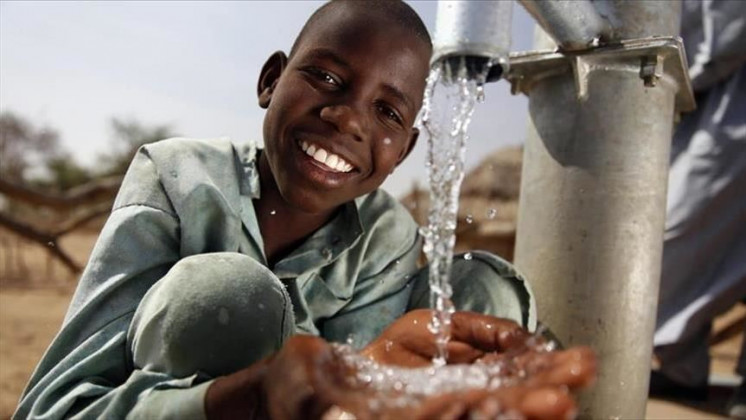In times of war, conflict, and natural disasters, ensuring access to safe water and proper sanitation facilities becomes a monumental challenge. Emergencies disrupt the normal functioning of communities, exposing vulnerable populations to a range of health risks. When chaos strikes, and the foundations of society are shaken, it is the most vulnerable who suffer the most. The availability of safe water, sanitation, and proper hygiene practices becomes uncertain.
However, understanding the vital role of WASH in emergency situations is the first step towards alleviating suffering and safeguarding public health. Safe drinking water is a fundamental human right and an essential component of human survival. During emergencies, access to clean water is often disrupted due to damage to infrastructure, contamination of water sources, or limited availability of resources. Contaminated water sources pose a grave threat, as they can lead to the rapid spread of waterborne diseases.
Cholera, dysentery, hepatitis A, and other waterborne diseases thrive in overcrowded and unsanitary conditions commonly seen in emergency situations. These diseases can cause severe dehydration, diarrhea, and if left untreated, even death. The impact on health is profound, with children, the elderly, and those with weakened immune systems being particularly vulnerable. Establishing and maintaining clean water sources, along with regular water quality testing, is a lifeline in such circumstances.
While clean water is often the first priority, sanitation is an equally critical aspect of WASH. In emergency situations like the war in Pakistan, sanitation facilities may be damaged or non-existent, leading to open defecation, which contaminates the environment and water sources.
Poor sanitation can exacerbate the risk of disease transmission. A lack of access to safe latrines can lead to the improper disposal of human waste, spreading pathogens and parasites. It is essential to construct safe latrines and provide sanitation education to prevent the contamination of water sources and mitigate the risks associated with inadequate sanitation.
When WASH services are compromised, the risk of waterborne diseases surges. Cholera, a highly contagious disease, is a prime example. It causes profuse diarrhea, vomiting, and severe dehydration, often leading to death within hours if left untreated. Dysentery, another waterborne disease, is characterized by bloody diarrhea and abdominal pain, causing immense suffering. Hepatitis A, a viral infection transmitted through contaminated water and food, can also spread rapidly in emergency settings. These diseases not only compromise physical health but also exacerbate psychological distress in already traumatized populations.
Effective hygiene practices, like handwashing with soap and maintaining personal hygiene, are essential to prevent disease transmission. In emergency situations, the absence of these practices can lead to the rapid spread of infections. Handwashing with soap is a simple yet powerful measure to prevent disease transmission, but it often falls by the wayside due to a lack of awareness, resources, or access to soap and clean water. Hygiene education and promotion must be a core component of any emergency response to prevent the spread of diseases and safeguard public health.
In conflict zones and disaster-stricken areas, delivering WASH supplies to affected populations can be immensely challenging. Security concerns, damaged infrastructure, and limited resources all contribute to the difficulties of providing clean water and sanitation facilities. Logistics involve everything from sourcing clean water and constructing sanitation facilities to ensuring ongoing maintenance and quality control.
Humanitarian organizations often face logistical nightmares, but their efforts are essential in ensuring that affected populations have access to these life-saving services.
Cultural beliefs and local practices can present significant barriers to effective WASH programs in emergency situations. Communities may have traditional sanitation practices that differ from the methods promoted by humanitarian organizations. These cultural differences can lead to resistance and hinder the success of WASH initiatives.
Understanding and respecting local cultures and customs while delivering WASH services is vital. For instance, some communities may have specific beliefs about water sources, sanitation, or hygiene practices. These beliefs should be considered when designing WASH programs to ensure that they are culturally sensitive and effective.
Therefore it is key to consider proper WASH practices during emergencies and protect the well-being of populations that are compromised.
The author; Wejuli Junior Mike, is a Public Health Specialist at Makerere University School of Public Health
Do you have a story or an opinion to share? Email us on: dailyexpressug@gmail.com Or join the Daily Express WhatsApp channel for all the latest news and trends or join the Telegram Channel for the latest updates.


